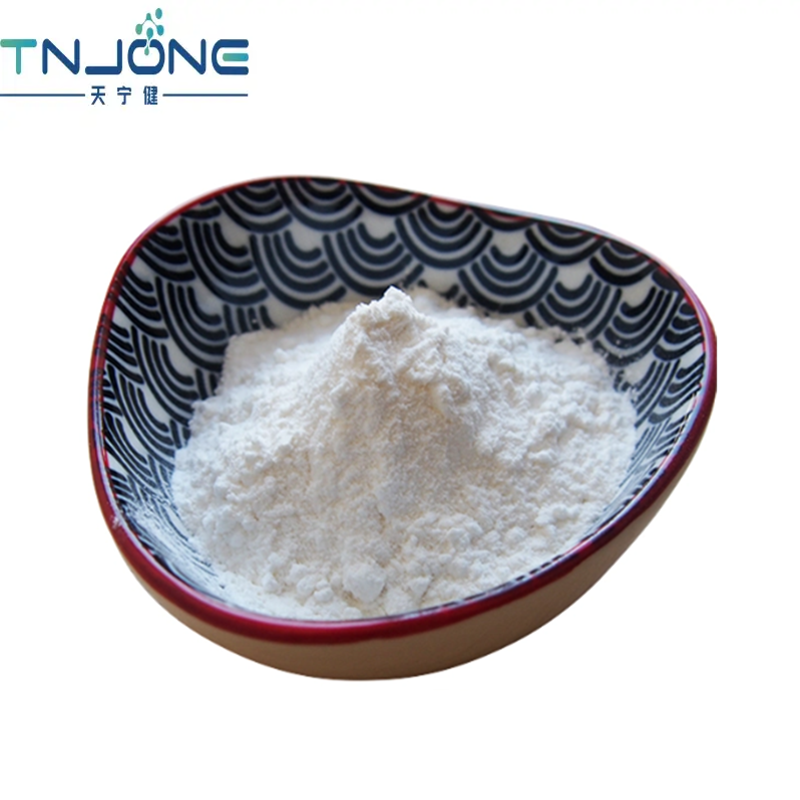-
Categories
-
Pharmaceutical Intermediates
-
Active Pharmaceutical Ingredients
-
Food Additives
- Industrial Coatings
- Agrochemicals
- Dyes and Pigments
- Surfactant
- Flavors and Fragrances
- Chemical Reagents
- Catalyst and Auxiliary
- Natural Products
- Inorganic Chemistry
-
Organic Chemistry
-
Biochemical Engineering
- Analytical Chemistry
-
Cosmetic Ingredient
- Water Treatment Chemical
-
Pharmaceutical Intermediates
Promotion
ECHEMI Mall
Wholesale
Weekly Price
Exhibition
News
-
Trade Service
Acetone is a lively carboxyl compound, widely found in various types of processed foods, mainly through the Merad reaction, caramelization reaction and lipid peroxide. In food, the formation and transformation of acetone aldehyde often occur at the same time, in hot processed foods more than 90% of acetone aldehyde after the formation of rapid disappearance, the disappearance of acetone aldehyde will have both beneficial and harmful effects on food. Its beneficial effect is to react with amino acids to produce flavor substances, giving food a variety of characteristic flavor. Harmful effects are: acetone aldehyde molecular reaction activity is high, it and food protein amino acid residues, especially arginine, lysine residue reaction, the formation of AGEs, causing aging, diabetes and a series of detoxification diseases, and easily converted into acrylamide, methyl methane and other derivative harmful substances, harmful to human health; Therefore, how to control the conversion path of acetone aldehyde, so that it tends to form flavor substances and not easily produce derivative harmful substances, has become the key to improve the quality of processed food. Zheng Jie, associate researcher in the Department of Food Science and Engineering of Jinan University, and Professor Ou Shiyi, among others, reviewed the formation and transformation of acetone in food, its advantages and disadvantages coexist in food characteristics, by expounding the interaction between acetone aldehyde and amino acids, polyphenols, analysis and prospects of the use of polyphenols and amino acids to control acetaldehyde and its derivative harmful substances in food prospects and problems to be solved.
First Author's Introduction
Zheng Jie Associate Researcher
Associate Researcher, Department of Food Science and Engineering, Institute of Technology, Jinan University, Master's Tutor, Guangdong Province, "Pearl River Talent Program" young top talent. He graduated from the University of Turku in Finland with a degree in food chemistry. Mainly engaged in thermal processing food safety and functional food development research, committed to research the formation and safety of harmful substances in baked goods, assessment of baked food harmful substances and their associated with amino acids, polyphenols and other forms of compounds, has published 44 papers (JCR Q1 30), with the first / communication author published 25 papers (Q1 District 16, Chinese Academy of Sciences 1 District) 13 articles; Chinese 6 core articles); 4 ESI high cited papers, H index 12; chaired 2 NSF projects, 1 Finnish NSF international cooperation project, 2 provincial and ministerial projects, participated in 4 national and provincial-level projects; participated in 2 English-language works (Springer Press 1); and was granted 3 patents for Inventions in China. He teaches applied food chemistry, food quality and safety research progress, food science topics, academic ethics and thesis writing, undergraduates food nutrition, food science overview, Food Nutrition (UK-wide) and Functional Foods and Nutraceuticals (UK-wide). As a special agent of rural science and technology in Guangdong Province, he carried out scientific and technological service work in Qingyuan City.
author of the newsletter
Professor Ozyi
Leader in Food Science and Engineering, Second Class Professor, Ph.D. Tutor, Jinan University Polytechnic Institute. He is a member of the Board of Directors of the China Food Society, executive director of the China Functional Food Society, executive director of the Guangdong Light Industry Federation, front Chem, editor of magazines such as Front Chem, China Food Journal, Modern Food Science and Technology, China Agricultural Science and Technology Guide, and a special agent of rural science and technology in Guangdong Province. Long-term engaged in high-temperature processing in the process of food safety research, presided over various types of scientific research projects more than 30 (of which 4 at the national level). In 2019, the team was approved by Guangdong Province Baking Food Safety Guangdong-Hong Kong Joint Innovation Platform, committed to serving the food safety control system in Guangdong, Hong Kong and Macao Dawan District, developing and establishing rapid detection technology for harmful substances and their additives for baked goods, clearly focusing on monitoring the food endo-sources Chemical hazards, research endochemical hazards in the processing, storage, transportation, digestion and amino acids and other components of the combined reaction and its safety, for the government and enterprises to provide data support and harmful substances detection and control technology, improve the level of food safety control in Guangdong and Hong Kong. So far, SCI has published 126 papers, cited more than 3,900 times, ESI high cited papers 4, H index 31. Editor-in-chief of teaching materials / monographs 3, won 25 chinese invention patent licensing, Guangdong Province Science and Technology Award second prize 1 (2011), the Chinese Academy of Sciences Outstanding Science and Technology Book Award 1 (2015), the China Federation of Commerce Science and Technology Award first prize (2014). Approved provincial quality courses 1, provincial postgraduate demonstration courses 1, training doctoral, master's students more than 60 people.
Xiao Jianbo, a special professor at Jinan University and a professor at Vigo University in Spain, has received a Ph.D. in Nutrition from Japan, a Humboldt Scholar at the University of Weilzburg, Germany, and has served in institutions such as the University of Macau. More than 200 papers have been published and accepted in international SCI journals such as Nature Reviews Drug Discovery, Trends in Food Science and Technology, Biotechnology Advanceds, Critical Reviews in Food Science and Nutrition, Molecular Nutrition and Food Research, and have been cited more than 10,000 times, h-index=52, and 4 times selected as Clarivates Global High Reference Scientist (Agriculture). Part-time as founding editor of Food Frontiers and executive editor of e-Food, deputy editor of Food Chemistry (IF 6.306) and Journal of Berry Research (IF 2.209), Trends in Food Science and Technology (IF 11.077), Critical Reviews in Food Science and Nutrition (IF 7.862), Journal of Nutrition Biochemistry (IF 4.873), Food and Chemical Toxicology (IF 4.679), Phytomedicine (IF 4.268), Industrial and Products (IF And Products 4.244), Food Science 15 international SCI journal editorial boards, including Human Wellness (IF 2.455). In June 2015, April 2017, August 2018 and December 2020, the 1-4th International Conference on Phytosic substances in Medicine and Food was organized and served as Executive Chairman of the General Assembly (Shanghai 2015, Fuzhou 2017, Kunming, 2018, Xi'an, 2020).







